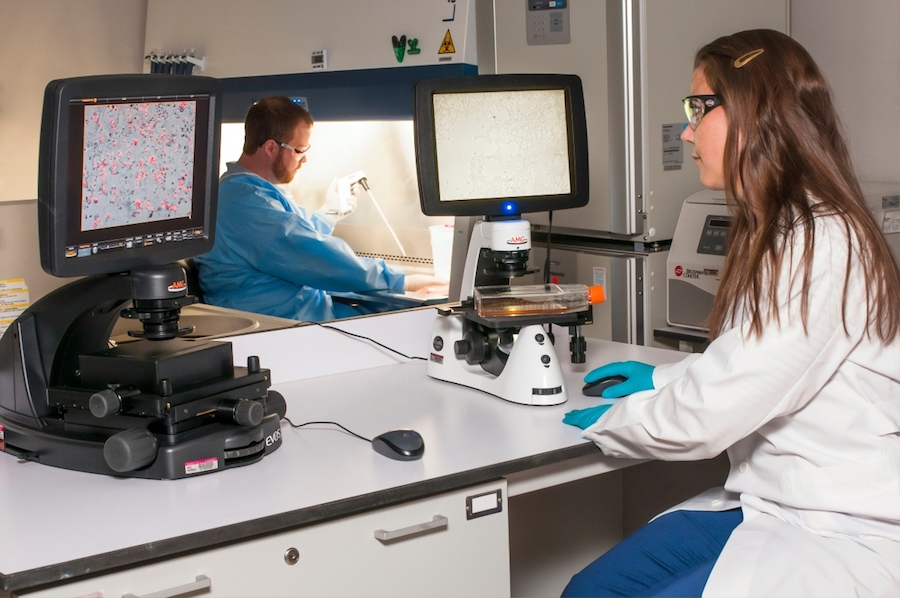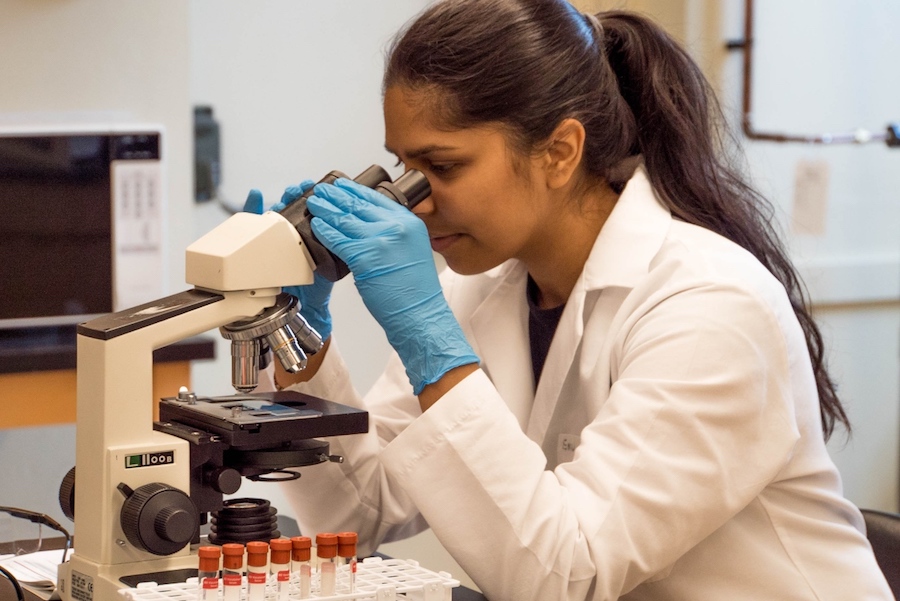
Medicine and technology have united on numerous fronts, but uniquely so in the battle against cancer. For many patients, this is a battle against time, and the sooner we are able to deliver smarter, more personalized treatment options, the greater their chances are of survival, and a greater quality of life. Currently, there are numerous studies promising enough to deliver truly outstanding cancer treatment opportunities in the near future, some of them already in different stages of testing.
The following research projects and scientific fields seem to be the most favorable when trying to build a cancer-free future. From how we lead our lives to boost our own longevity with prevention, all the way to gene therapy, cancer could potentially be defeated on several key fronts. Here, we’ll cover a few of the most opportune solutions to the cancer issue that the future might hold.
Prevention in the spotlight
While discovering different cures for cancer and building potent treatments is continuously stealing the spotlight, prevention is another aspect of defeating cancer in the future that will help on numerous levels. By promoting healthy habits such as proper nutrition and exercise paired with taxes on cigarettes and alcohol, further enforced by vaccination against common cancer-causing pathogens such as HPV, anywhere between 20 to 40% of all cancer cases would be prevented.
Lifestyle modifications are a matter of collective awareness and culture, and if prevention were increased even marginally, the budget that would otherwise be used to treat preventable diseases could be repurposed to research and treat other forms of non-preventable cancer.
Harnessing the power of our immune system

On one hand, we know that our immune system is quite a powerful mechanism against pathogens such as viruses and bacteria. Every time our body is attacked by a pathogen, an immune response is triggered to eliminate the intruder. When your own cells become the intruders and start mutating without control, your immune system doesn’t always respond, which is when cancer occurs. Leveraging specific, rare immune cells to produce a powerful immune response against cancer is the focus of numerous research projects today.
For example, Dr. Chow and her team have discovered that certain immune cells such as plasmacytoid dendritic cells have the potential to respond to more than just viral infections, but to potentially help defeat cancer. This particular research deals with how the immune system and these pDCs can be programmed to target cancerous cells and if a vaccine can be created to build up an immune response against cancer.
Personalized vaccines
Although cancer is a convenient term to use, it actually denotes not one, but many different cellular mutations, all unique to each patient. Knowing that, many scientific research projects targeting cancer are actually focusing on that particular feature of the disease. By targeting the mutation pattern itself, scientists are looking into ways to personalize a treatment that will be unique to each individual patient.
With the help of the right mapping tools and methodologies, we have the capacity to map the mutations of each cancer and recognize the unique mutation patterns that can be used to create a potent, personalized vaccine.
Using the microbiome

Now that we know that the microbiome is an essential segment of our immune system, it stands to reason that it can have a major impact on treating cancer. Immunotherapy based on recognizing and isolating specific immune cells to eliminate cancerous cells can often be complemented by what our microbiome does for our health.
Research has shown that specific microbial strains can help increase the impact of our immune response to defeat cancer. By increasing the levels of those microbial strains in the gut, our immune system can potentially be more effective when fighting cancer cells. The process is still not entirely clear, and there’s much we have yet to learn about this curious interaction between our microbiome, cancer, and our cells’ stress response, but it seems we are on the verge of another breakthrough in treating cancer with our own defense systems.
Advanced detection technologies
Cancer screenings are often disguised as the most mundane medical checkups we all go through at least once a year. Then there are those standard self-examinations that are encouraged everywhere to spot early signs of malignant changes and recognize the right moment to head to a doctor. However, some of these methods are not nearly as precise as we need them to be. In truth, we need more refined, fine-tuned screening methods that help us detect and diagnose cancer in its earliest possible stages.
Take colonoscopy as an example of a common test that aims to detect early signs of colorectal cancers. Alas, this exam comes with a 20% “miss rate”, allowing for too many cancers to go undiagnosed for too long. In response to such diagnostic issues, more scientists are focusing on designing cutting-edge screening methods such as molecular imaging that will help reduce the miss rate significantly, or make cancer much easier to spot early on, even before it forms.
Every step of the way, from prevention, detection and diagnosis, all the way to actual treatment, cancer research is one of this century’s greatest intellectual and innovation battlefields. As more experts work together to understand cancer as a group of diseases and to fully comprehend the role of our own immunity, taming cancer is slowly becoming a question of collective awareness and collaboration, rather than finding that one, single cure.
Hopefully, the ongoing studies and research programs will give us the direction we need to adapt our lifestyles and to take advantage of the most advanced scientific breakthroughs available to treat and prevent cancer.
By Peter Minkoff
Peter is a lifestyle and travel writer at Men-Ual magazine, living between Ústí nad Labem and Antwerp. Follow Peter on Twitter for more tips.

